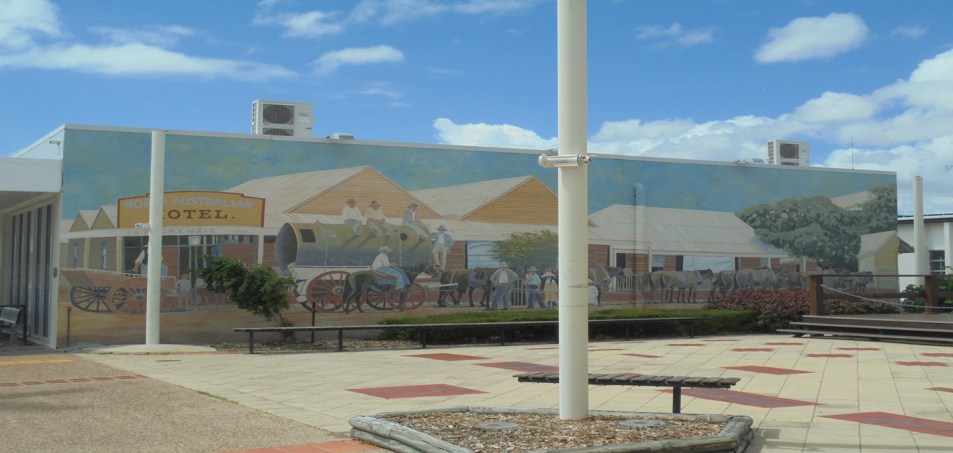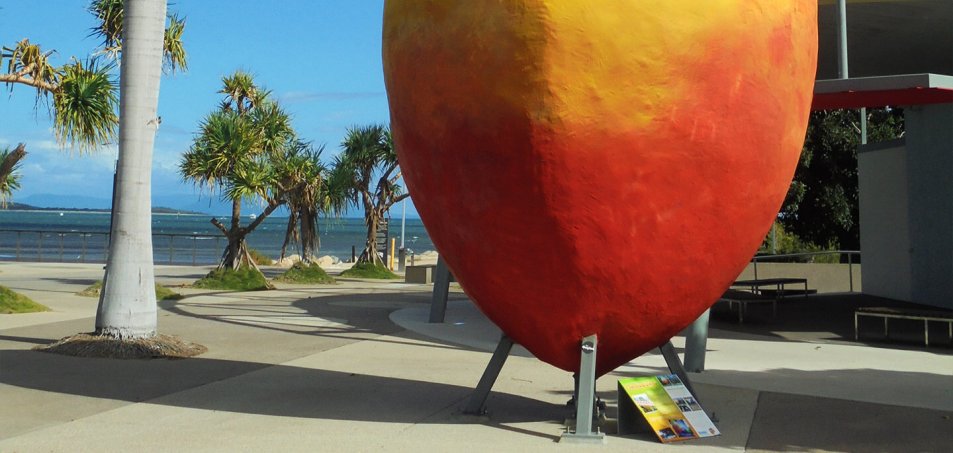“I am work.”
Essington Lewis, founder of BHP
Days after I left Bowen, the Stop Adani protests began in earnest, people locking on along the rail line path, occupations in Townsville, where the council had laid off dozens of staff, to shoot Adani a $15 million free airstrip. It was difficult to know how much more bad news could come. But had it been announced that the real purpose of the Carmichael mine was to store the corpses of children drained for their nourishing blood products, there would be those in town who would mutter “jobs”, and continue on. Jobs jobs jobs. The mantra has become religious, the reason for the decades-long gulf unexamined, the belief that a few big projects could substitute for the vanishing of a whole way of life, fervent.
Queensland, for more than a century, was work; slavery-work, peonage-work, forced-labour, day-rate wage-slavery, then for a while, and after much struggle, good wages, good jobs. Now it was going, the change a product of vaster forces, and only path for survival and flourishing was beyond the religion of work, of the brute and relentless transformation of the landscape.
The white Bowenites — though white was a cultural division here; the place is one of the genuinely mixed populations in Australia, Islander freckle swirls and soft hair on the white kids, craggy Germanic features among the Islanders; all of this Barbary Coast admixing a source of immense white anxiety, of course — prided themselves on being work, painted their walls with the efforts made to build, distinguished themselves from those they had colonised, by their rationality and application.
In pursuit of the return of such, the position had become entirely reversed. As Indigenous groups forged ahead with ideas for hybrid economies, white Bowenites had become given over to a cult of extraction. The great god Adani would descend, the iron snake would move across the landscape and replenish the sea people of the Big Mango totem — so long as the sacrifices, the public money-fires, kept coming.

Yesterday, yet another punking, with the suggestion that Chinese state-owned interests may prop up Adani and Carmichael. Finally, the Commies are coming back to Bowen! But, as reports also mentioned, the Chinese don’t do outsourcing; they’ll do as much as possible in-house, and so the ancillary jobs the region was hoping for — already far less than promised — may not be coming at all.
But for all the frustration at seeing a collective unwillingness to grapple with the real present, one can sympathise with the dilemma of Bowen, and of vast areas of regional Australia. They have always lived off an illusion — that their prosperity comes from the sheer labour of the harvesting and extraction, the sweat of the brow on the lawless frontier.
It wasn’t anything like that of course. Vast areas of white regional Australia were simply a government project, supported by intersecting regimes of state monopsony, imperial/commonwealth preference markets, and cross-subsidisation. This is not something that can be easily represented on a mural, nor does it provide for much of a heroic self-conception. Now that it has been largely withdrawn, the nostalgic yearning for it becomes all the stronger.
This has been exacerbated by the harsh shift from Australia as a network of cross-subsidised regions, to one in which the mining boom has put fly-in-fly-out at the centre of regional life — and in doing so destroyed much of its viability.
Over the last 15 years, state and federal governments have allowed the mining companies to institute 100% FIFO, to duck their responsibilities for regional development, starve local mining communities of jobs, and lay waste to the lives of many of those who adopted FIFO, thinking it would provide them with stability and flexibility.
Turning mining from a stable job at the centre of a community, to a gruelling endurance race of seven-day/12-16 hour shifts has not only made communities unviable, it has essentially cap-blasted the miners themselves.
Ice and other drugs have been used for stamina, or for kicking on through time off or both; ice, in turn, has spread into the wider community, including Indigenous communities. This, in turn, has intersected with new regimes of policing of Indigenous people coming out of the Intervention a decade back, and entwined with the removal of Indigenous autonomy, the imposition of white “supervision”, and regimes of behavioural management such as the cashless welfare card. Essentially, regional Australia has become a post-communal space. The state apparatuses that were once used to make community possible now run the place as a hi-tech quarry, a hi-tech mission, a hi-tech prison.
The first step towards restoring a real autonomy to regional Australia would be to make clear and visible the social disaster that has been allowed to unfold, and to recognise what appear to be separate emergencies — Indigenous incarceration, youth drug use, the pathologies of FIFO from gambling addiction to family breakup — as the product of a single process. It is only when we decide as a nation whether we are going to have a regional Australia of any significance outside the major towns, that we can build a policy framework that recognises that the harvesting/extractive work-centred life is gone, and no amount of useless production/destruction will bring it back.

It’s places like Bowen that will need, as Kenny Dodd gestured to, to change the way they think about work, activity, and relationship to the terrain, to the full-time working day. Everything is going, in the long-term, the mid-term, or now. Even fruit and veg picking will go. Currently handed over to backpackers, the side-benefits of exoticism of travel and experience making it possible to pay wages that locals regard, rightly, as immiseration.
But that will require an honouring of the past as past, something for the walls, and a reconnection with the process of struggle that built it in the first place. The ghosts of their ancestors look on from those walls, remembering everything except the social war it took to make the place livable. In Bowen, Australia has become Australia. I didn’t come looking for such — I wish its people well — but when somewhere is wreathed in a fantasy that would kill us all, it has to be called as it is. The consolation might be, that it ain’t the only one to have to go through this. Click your red shoes together, Bowen, the next storm is coming.








Crikey is committed to hosting lively discussions. Help us keep the conversation useful, interesting and welcoming. We aim to publish comments quickly in the interest of promoting robust conversation, but we’re a small team and we deploy filters to protect against legal risk. Occasionally your comment may be held up while we review, but we’re working as fast as we can to keep the conversation rolling.
The Crikey comment section is members-only content. Please subscribe to leave a comment.
The Crikey comment section is members-only content. Please login to leave a comment.